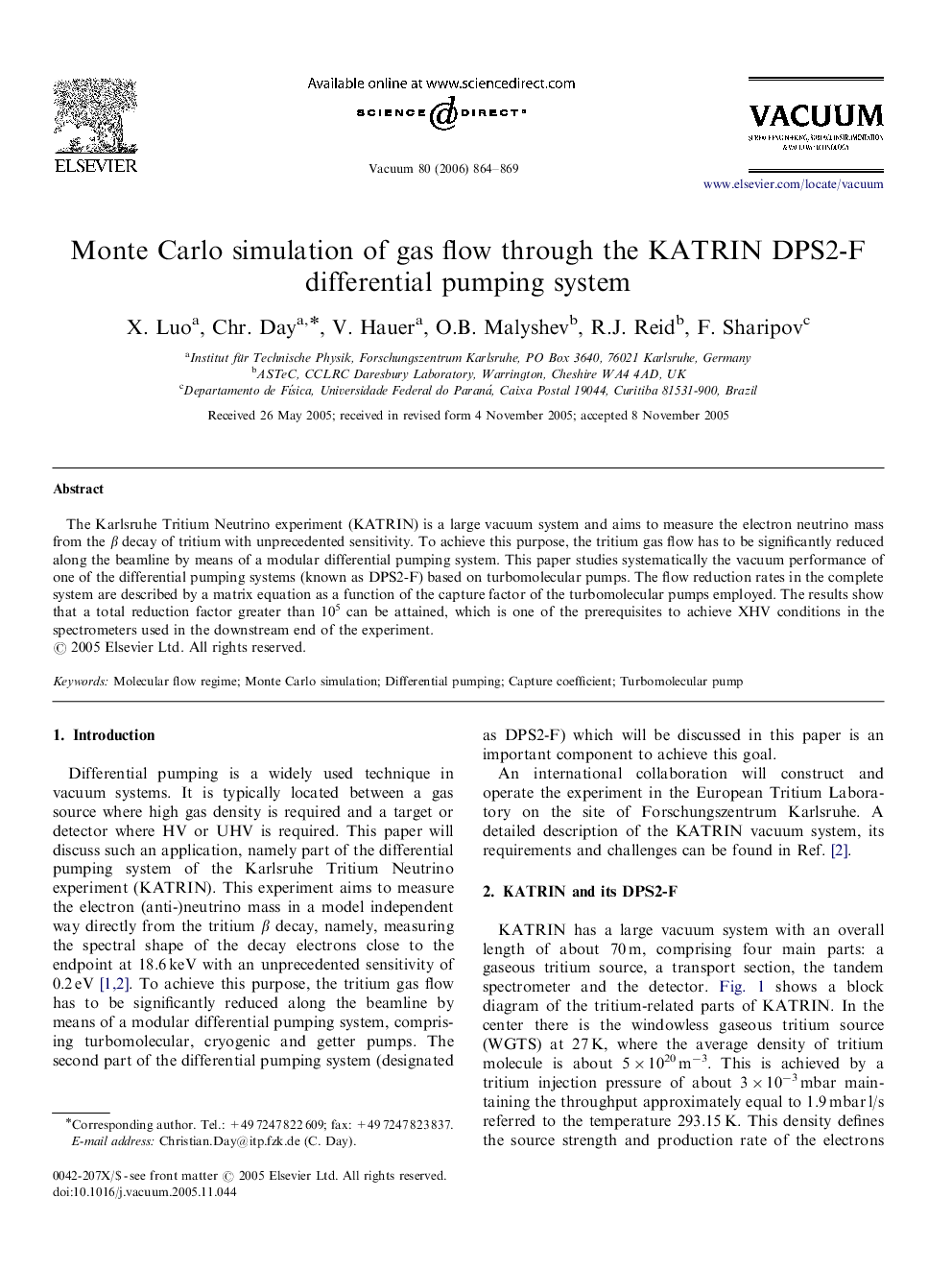| Article ID | Journal | Published Year | Pages | File Type |
|---|---|---|---|---|
| 1690554 | Vacuum | 2006 | 6 Pages |
The Karlsruhe Tritium Neutrino experiment (KATRIN) is a large vacuum system and aims to measure the electron neutrino mass from the ββ decay of tritium with unprecedented sensitivity. To achieve this purpose, the tritium gas flow has to be significantly reduced along the beamline by means of a modular differential pumping system. This paper studies systematically the vacuum performance of one of the differential pumping systems (known as DPS2-F) based on turbomolecular pumps. The flow reduction rates in the complete system are described by a matrix equation as a function of the capture factor of the turbomolecular pumps employed. The results show that a total reduction factor greater than 105 can be attained, which is one of the prerequisites to achieve XHV conditions in the spectrometers used in the downstream end of the experiment.
